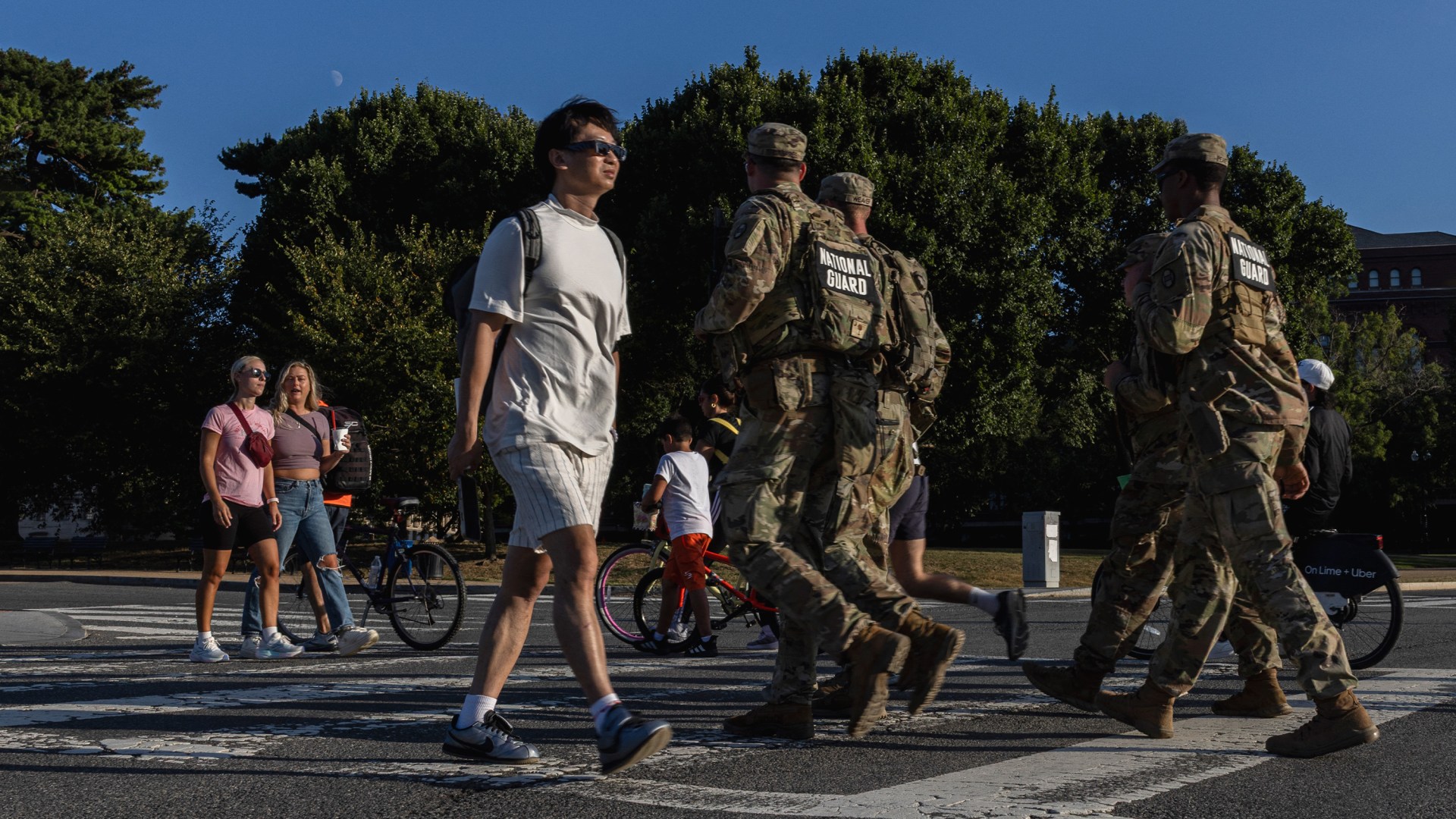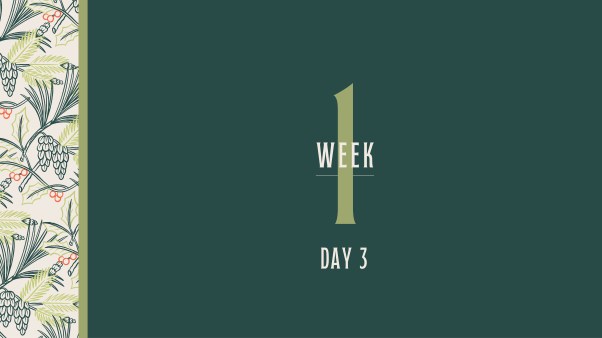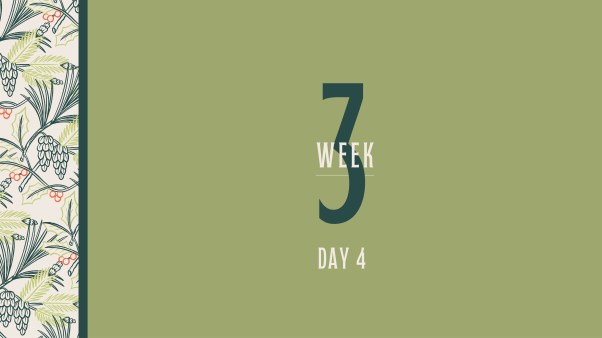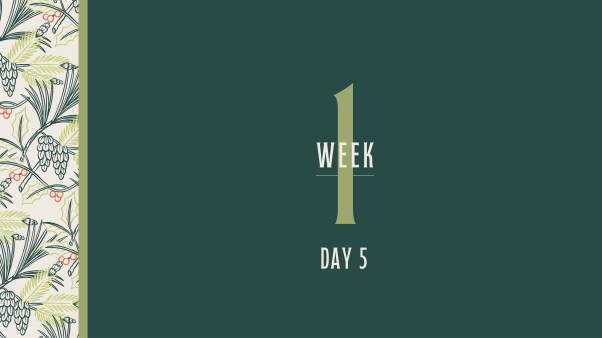On a recent Sunday evening, my wife and I decided to take our kids out for a walk in our neighborhood on the South Side of Chicago. As we rounded the corner, returning to our street, one of my kids asked, “Daddy, are those guys fighting?”
A group of young men had gathered on the corner of our block, their body language tense, voices rising. My 3-year-old son tightened his grip on my hand while my 14-year-old daughter’s demeanor became worried. Thankfully, the situation dissipated quickly, and we saw the young men run off before we reached the corner.
Inside the walls of our home that evening, my family discussed whether President Donald Trump’s intention to deploy National Guard troops to Chicago would make it safer for us to take an evening stroll in our community. Compared to those conversations and the thoughts inside my own head, the response from Chicago’s political establishment has not been as open or curious. Progressive voices across the city joined a familiar chorus of outrage, treating Trump’s announcement as merely an assault on local sovereignty while discounting that it’s also a response to genuine public safety failures. However, the always-easy path of reflexive opposition has not been helpful.
Let me set out at the beginning that this isn’t a partisan take. Before I went into pastoral ministry, I spent the better part of two decades working in Democratic politics and progressive advocacy. I organized the Chicago Peace Campaign, mobilizing local churches to engage communities plagued by violence, and worked on an initiative that called for an end to the “war on drugs,” which has taken an enormous toll on the Black community.
I’m not carrying water for Trump or looking for reasons to defend federal overreach. I’m aware there are serious legal questions about using troops to police American streets. Trump himself seemed to acknowledge the limits of his authority on Wednesday, saying state officials would have to ask him to send the National Guard to Chicago. I also understand that Trump’s rhetoric about Chicago—his description of the city as a “hellhole”—echoes the same dehumanizing language he used for African nations during his first term.
But at the same time, I recognize something Chicago’s political class refuses to acknowledge: The status quo is failing our families and communities.
When my children do not feel safe to ride their bikes in our neighborhood, when they come running home from the park because something they saw troubled them, when parents across the South and West sides of the city alter their children’s activities based on safety concerns, firebrand speeches from local leaders about improved crime statistics ring hollow. It’s true that Chicago’s violent crime rate has declined this year. But these marginal gains follow upticks in recent years as well as decades of devastating violence, and simply stating the progress doesn’t address the daily anxieties many families encounter in their own neighborhoods.
The uncomfortable truth is that the people legally empowered and morally responsible for protecting Chicago’s communities have not fulfilled their obligation, creating a vacuum that Trump now seeks to fill—and perhaps even exploit for other policy ends.
When lives are at stake, we cannot afford to travel the low road of partisan loyalty to either party. As the set-apart people of God, let’s be clear, truthful and nuanced—pursuing the peace and prosperity of our respective cities and towns (Jer. 29:7). The type of peace I want for Chicago encompasses far more than crime reduction, but it certainly cannot ignore basic security that enables communities to thrive.
We need neighborhoods where children can play without fear, families can walk to the store without calculating risks, and residents have economic opportunities to pursue meaningful lives. Deploying federal troops cannot build the social trust, economic development, and community cohesion a sustainable safety needs. But if those in charge plan and manage it correctly, deployment could be a meaningful first step—one state and local leaders should consider welcoming.
More federal help would go even further. The president could deploy federal law enforcement agencies—including the FBI and the DEA—to bolster investigations into the activities and people contributing to violence and disrupting quality of life in Chicago and other high-crime cities. As Chicago mayor Brandon Johnson has rightly suggested, Trump could reinvest in the Bureau of Alcohol, Tobacco, Firearms, and Explosives to help get illegal guns off the streets. Furthermore, he could direct resources to programs intended to revitalize low-income neighborhoods and provide support for families who anchor those communities.
Justice-conscious Christians should hold all levels of government accountable for urban peace while advocating for comprehensive approaches to crime. This might mean welcoming federal partnership when it can contribute to immediate safety improvements (as DC’s mayor Muriel Bowser did this week) while also pushing for solutions that address root causes of violence. In that area, both the left and the right have constructive ideas worth considering.
The federal heavy-handedness we see on this issue is a direct result of local complacency. Trump’s motives are questionable and may focus more on calculated political positioning than on genuine concern for urban violence. However, we Christian leaders cannot limit our criticism to federal overreach while remaining silent about local government failures that directly harm the communities we serve. These selective denunciations serve partisan politics, but they do not serve the cause of justice.
The prophetic tradition, particularly in the Black church, calls us to speak truth to power at every level and not be cowed by progressive leaders, some of whom seem more concerned with political posturing and deflecting from the issues than with solving the concerns of families in vulnerable neighborhoods. Our children need leaders at every level who will prioritize their welfare over partisan politics. They should not have to wait indefinitely for basic safety.
Chris Butler is a pastor in Chicago and the director of Christian civic formation at the Center for Christianity & Public Life. He is also the co-author of Compassion & Conviction: The And Campaign’s Guide to Faithful Civic Engagement.

















